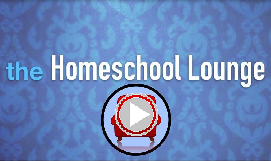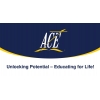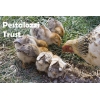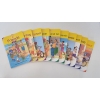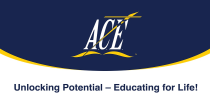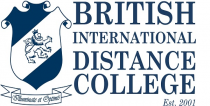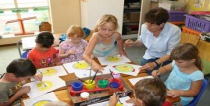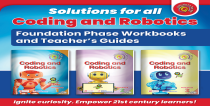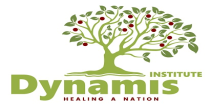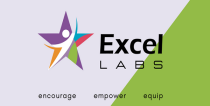Cambridge
The most commonly used international matric by homeschool families in South Africa is the Cambridge matric. The Cambridge International Examination (CIE) is part of the University of Cambridge in the UK. CIE is a provider of international qualifications, offering examinations and qualifications in more than 160 countries.
In South Africa, most students follow two Cambridge courses namely IGCSE (International General Certificate of Secondary Education) and AS Levels (Advanced Subsidiary). In broad terms, the Cambridge IGCSE qualification is equivalent to a South African Grade 11 and the Cambridge AS Level is equivalent to a South African Grade 12.
Some home education students who want to get admission to study fields with a high entrance level like medicine continue with A Levels which is a grade 13 equivalent, although A level subjects are not necessary for university exemption.
Why choose Cambridge?
Cambridge is an internationally recognized qualification of a high standard. It is academically challenging as far as content and volume is concerned. These exams are therefore more suited for students who are academically inclined and are disciplined learners. For the child who want to pursue studies that is difficult to get accepted for, such as medicine, veterinary science, occupational therapy, physiotherapy, etc. Cambridge is a good choice.
The IGCSE (Grade 11)
In South Africa, IGCSE is equivalent to grade 11. IGCSE is internationally recognized as being equivalent to the GCSE in the United Kingdom. It is also the replacement for O Levels in many countries.
Most students start off with the IGCSE when they are between 14 and 16 years of age. They choose a minimum of 5 subjects from the subject list on the Cambridge website. The IGCSE normally takes 18 months – 2 years to complete. Follow this link for a list of subjects as well as guidelines with regard to matric exemption for admission to the university.
https://www.cambridgeinternational.org/Images/523166-university-recognition-south-africa.pdf
AS Levels (Grade 12)
The Cambridge AS Levels is equivalent to the South African Grade 12. AS Levels follow IGCSE and students are usually between 16 - 19 years of age when they undertake AS Level subjects. It normally takes 18 months to 2 years to complete.
A student may continue with a minimum of 4 of their IGCSE subjects on AS level; and carry one IGCSE subject onto their AS-Level Report Card, subject to achieving a minimum of a C symbol for the subject in their IGCSE examinations. Subject choice varies depending on whether a student wishes to attain merely a Matric Pass or a full university exemption.
Subject choices
There is a range of subjects to choose from on the Cambridgeinternational.org website. To matriculate with exemption the student needs to follow the guidelines on the HESA website.
https://www.cambridgeinternational.org/Images/523166-university-recognition-south-africa.pdf
Below is a sample of some of the subjects. For an AS Level with exemption certificate students must have 4 subjects on AS level plus 1 subject at IGCSE level. Students must choose one subject in group 1, 2 and 3 on either AS or IGCSE level and the fourth and fifth subjects may be taken from any of the groups and taken on AS or IGCSE level.
Group 1 - English Language, English Language and Literature
Group 2 – 2nd Language – Afrikaans, French, Dutch, Portuguese, and other
Group 3 – Mathematics, Biology, Physics or Chemistry
Group 4 – Mathematics, Biology, Physics, Chemistry, Economics, Geography, History and Art & Design
Group 5 – Accounting, Computer Science, Divinity, Religious Studies and Business Studies
University exemption
Although it is generally accepted that IGCSE is equivalent to grade 11, AS-level subjects to grade 12 and A-level subjects to grade 13, the USAf matriculation board accepts a combination of these qualifications in order to issue a university exemption. Students choose one subject from group 1, one subject from group 2, one from group 3 and the other one or two subjects from any of the groups. (see options below). The pass rate for A level subjects is an E symbol (40 - 49%), for AS level subjects a D-grade (50 - 59%) and for IGCSE a C symbol (60 - 69%)
Option 1: 2 subjects at A-level and 3 subjects at IGCSE level. Students must choose one subject from group 1, one subject from group 2 and one subject from group 3. The other two subjects can be chosen from any of the groups and can be taken at either A or IGCSE level.
Option 2: 3 A-level subjects and 1 IGCSE subject. One subjects should be chosen from group 1, one from group 2 and one from group 3 on either AS or IGCSE level. The fourth subject can be from any group.
Option 3: 4 AS-level subjects and 1 IGCSE. . Students must choose one subject from group 1, one subject from group 2 and one subject from group 3. The other two subjects can be chosen from any of the other groups and can be taken at either AS or IGCSE level.
The complete list of subjects are available on the HESA website.
How to prepare
Each subject on the Cambridgeinternational.org website has a syllabus overview, past exam papers as well as prescribed books endorsed by Cambridge (published resources). These books can be bought directly from the publishers or online stores.
Many homeschoolers study on their own or with the help of a tutor who is sometimes a homeschooler who has finished the Cambridge exam. Experienced tutors can teach your children techniques, skills and help them avoid pitfalls. A tutor can also help you to decide which textbooks to use, as each specific tutor may use a specific textbook to work from.
There are also several curriculum suppliers in South Africa that prepare students for the CIE.
Homeschoolers who follow the Cambridge route, recommend joining a Cambridge homeschool support group as they can exchange valuable information on books to use as well as tutors.
How to write exams
Exams are written twice a year either through the chosen curriculum supplier or an independent student may register and write at a registered Cambridge examination centre. Some private schools allow independent candidates to sit and write with their students. Alternatively a candidate can write at the British Council in their home town. For more information in this regard, send an email to This email address is being protected from spambots. You need JavaScript enabled to view it.
Exams are written in May/June and October/November each year. Cambridge charges a per-subject paper exam fee which needs to be paid in advance. There may be other fees in addition to this depending on where a candidate chooses to write the exam.
Costs
The approximate total costs for obtaining a matric are as follows:
Cambridge = R30,000+ (approximately 3 years for IGCSE (typically done Gr 10) and AS-levels (typically done Gr 12). A-levels are not required by local universities. These are exam costs only and excludes textbooks, classes, laboratory work, tutor support etc.)
Advantages of Cambridge
- Cambridge qualifications give students easier access to universities not only in Southern Africa, but also internationally. (Be sure to contact the university of your choice for their admission requirements.)
- Since the standards of Cambridge are high, this qualification enjoys prestige and students can easily obtain a bursary.
- Cambridge offers excellent preparation for the challenges of university.
Disadvantages of Cambridge
It can be expensive, especially if you need to use tutors.
It is very intense and in the months preceding examinations there is very little time for any other hobbies or interests.
For more information: Contact British Council, 3rd floor, St. John’s Place, 21 St. John’s Street, Cape Town
https://www.britishcouncil.org.za/
Cambridge Support Groups
https://www.facebook.com/groups/546397418725306
https://www.facebook.com/Cambridgehomeschoolcommunity/
https://www.facebook.com/groups/358203488251169/?ref=share
Events
Legal & Research
Centres
Homeschool ABC
Support
Curriculums
Has no content to show!



